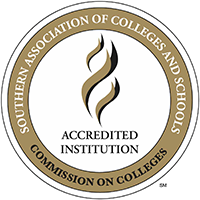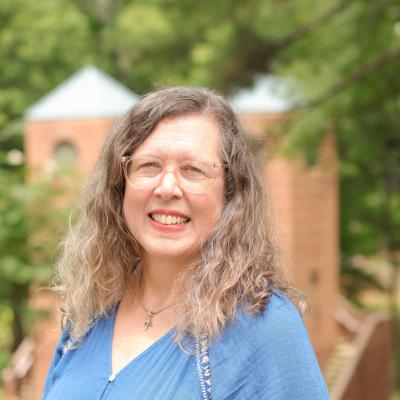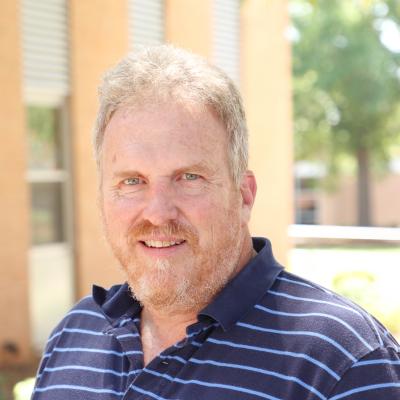Location
Curriculum
120 credit hours
Program Length
4 years
Accreditation
Regionally Accredited by SACSCOC
Personal, Practical, Purposeful — Earn Your Degree in Psychology
The Bachelor of Science in Psychology program at Columbia International University provides you with a personalized undergraduate experience tailored to your professional goals. Through experiences inside and outside of the classroom, you will develop the practical abilities that employers and graduate schools are seeking, including skills in the areas of communication, interpersonal relations and research. CIU’s Psychology program will empower you to live out God’s purpose in your personal and professional life as you explore the latest scientific developments through the unchanging lens of Scripture.
Psychology courses offered regularly at CIU include:
- Human Growth and Development
- Abnormal Psychology
- Cognitive Neuroscience
- Theories of Counseling
- Research Methods and Design
Juliano Maglio
Why Choose Columbia International University
CIU Psychology Distinctives:
- Practicum experiences in research, clinical work or both give you real-world exposure relevant to your career goals
- Senior capstone project integrating Psychology and Christianity
- Accelerated program available allowing you to begin working toward your Master of Arts in Clinical Counseling while you are still completing your Bachelor of Science degree in Psychology
- Active Behavioral Science Club (Psi Lambda Delta)
- Opportunities to attend or present at professional conferences, including the Christianity and Psychological Studies conference and the annual meeting of the Southeastern Psychological Association
As a Psychology major, you will have access to a variety of options for practical experience during your time at CIU. Recently, Psychology majors have served as prayer counselors for a nationwide radio network and worked in community placements including: Agape Counseling & Training Services, the Lexington County Sheriff’s Department, Lexington District 4 Schools, the Richland County District 2 Family Intervention Program, Sexual Trauma Services of the Midlands, Fellowship of Christian Athletes, the Camp Cole equine therapy program and the South Carolina Department of Mental Health.
Overall Benefits of this Degree
Psychology Majors are predicted to see 14% job growth from 2018–2028.
After completing your B.S. in Psychology, you may go on to graduate school or straight into a career. Either way, your psychological studies will expand and enhance your personal and professional skills, including your skills in time management, communication, numerical analysis and information gathering and processing. Psychology graduates pursue a variety of career paths, and many types of employers value their abilities to critically analyze data, evaluate situations and solve problems. With so many career options, The CIU Psychology program will intentionally engage you in discerning God’s call on your professional life through courses like the Integration of Psychology and Christianity, CIU’s Advisee Chapel speaker series and the Psychology Practicum which will expose you to a variety of work settings.
Featured Faculty
What Will I Study?
In addition to the undergraduate core, here are degree specific-courses you can expect to take:
- PSY 3310 Abnormal Psychology
In this course, you will learn about the causes, symptoms, assessment/classification, and prognosis of mental and emotional disorders. You will also focus on treatment and prevention, as well as the influence of personal faith and the local church upon mental health and functioning.
3.00 credit hours
- PSY 3370 Human Growth and Development
In this lifespan course, you will examine developmental psychology covering the stages of physiological, psychological, sociological, and spiritual growth of the individual from conception to adulthood. You will analyze significant terms, theories, methods of assessment, and the biblical nature of the developing person. Special attention will be given to the cultural diversity of developing persons in varied learning environments.
3.00 credit hours
- PSY 4330 Social Psychology
This course is an intensive look at group and social processes as they affect individual behavior. Human experiences such as individual motivation, group behavior, attitudes, and perception of self and others are studied from the viewpoints of social science and Scripture.
3.00 credit hours
- RES 3411 Research Methods in the Social Sciences
In this course, you will begin to examine the principles, methods, and procedures used in producing and evaluating research designs in psychology. You will learn about experimental, quantitative methodology, as well as other major techniques of research. You will prepare an original empirical study, written in APA format.
3.00 credit hours
- PSY 3445 Theories of Counseling
This course introduces students to popular approaches to counseling and therapy. The course includes a review of assumptions about personality made by the therapeutic schools and the techniques they typically use to effect change. The course covers a variety of psychodynamic, behavioral, cognitive and phenomenological approaches, and addresses the desire for evidence based practice. (3)
3.00 credit hours
- PSY 4340 Personality Theories
In this survey of the leading personality theories including analytic, humanistic, behavioral, and cognitive schools, you will explore how personalities develop, how they are organized, and how they change. You will examine how presuppositions influence personality theories and the clinician's approach to growth and healing.
3.00 credit hours
- PSY 3320 Cognitive Neuroscience
This course will provide you an overview of Cognitive Neuroscience and will explore our perception of the world around us. Cognitive theory and research will be examined and applied to our everyday experiences and mental processes. Topics include perception, attention, memory/forgetting, thinking, problem solving, intelligence, language development and information processing.
3.00 credit hours
- PSY 3325 Sensation & Perception
A survey of the current scientific models, concepts and integrative theories that encompass the field of human sensory and perceptual studies, with a special emphasis on the neurological and cognitive features of vision.
3.00 credit hours
- PSY 4350 Physiological Psychology
This course is designed to introduce you to the biological foundations of perception, thought, emotion, and behavior by in-depth examination of sensation thresholds, optical perceptions and illusions, different brain structures and their functions, and the biological basis of some forms of mental illness. You will gain a deeper understanding and appreciation of the scientific underpinnings of psychology through taking this course.
3.00 credit hours
- PSY 4413 Supervised Research in Psychology
This course is designed to give students time to complete a substantive research project and should involve conducting original psychological research. Credit is earned by working with a faculty member in a supervised setting on one or more psychological research projects. This may include laboratory research, data analysis, field experience, and library research. This hands-on experience enhances students' understanding of issues in research design and analysis and prepares them for more advanced research opportunities should they choose to pursue them. Student researchers are expected to spend a minimum of 10 hours per week on their project. Enrollment by permission only. Repeated for credit (1-6).
3.00 credit hours
- PSY 4920 Psychology Practicum
This is an intensive, on-site experiential learning opportunity, involving approximately 100 hours of direct, on-site service and requiring additional paperwork, feedback, and measurements of outcomes. Usually this practicum is taken during a student's senior year. For this practicum, you are typically placed in a hospital or clinic-based setting where your work is supervised and evaluated by both a licensed site supervisor and a college faculty member.
3.00 credit hours
- PSY 4540 Integration of Psychology & Christianity
This course is an overview of some basic approaches to the integration of psychological science and practice with Biblical the theological perspectives. Students will be exposed to a variety of beliefs regarding the relationships between science and Christianity, and they will engage in thoughtful discussion on difficult integrative topics while developing their own perspectives and convictions regarding integration. (3)
3.00 credit hours
- SOC 3740 Marriage and Family
This course is a study of the societal patterns of marriage and family life. Biblically and sociologically, you will address issues of courtship, choice of a mate, engagement, the marital adjustment, parenting, divorce, and the development of problem-solving skills. You will use personal application and training from the course to develop the skills to communicate more effectively to others about marriage/family issues.
3.00 credit hours
Accreditation and Accolades

Career Path Opportunities
Here are some of the areas where you will see Psychology graduates working:
- Professional Counseling, Marriage and Family Therapy, Addictions Counseling
- Advertising, Sales Representative, Market Research Analyst, Public Relations
- Clinical Psychologist, Neuropsychologist, Industrial-Organizational Psychologist
- Child Welfare Caseworker, Case Manager
- Program Staff (in organizations such as YMCA and Boys’ & Girls’ Clubs)
- Church-related Professions: Children’s Minister, Youth Minister, Family Minister, Pastoral Counselor
- Neuroscience research
- Social Worker, School Social Worker, School Counselor
- Law (including mental health law and policy) & Law Enforcement
- Financial Aid counselor, Loan Officer, Benefits Manager
- Human Resources Personnel
- Applied Behavior Analyst
- Criminal Investigator, Forensic Psychologist, Corrections Officer
- College Student Affairs Professional (ex. Residence Hall Director)
- Art Therapy, Music Therapy, Dance/Movement Therapy
Top FAQs
- If I major in Psychology, will I still have time for a minor area of study?
-
Yes — the Psychology major provides 30 hours of “open” electives which students often use to get a minor, a second major or to start coursework toward their Clinical Counseling master’s degree if accepted into the accelerated program.
- What are some minors that Psychology majors take?
-
Biology, Business, Youth Ministry, Human Services and Music are popular, but we can help you choose a minor that will fit well with your career goals.
- Do I have to get a master’s degree to become a counselor?
-
To become a licensed counselor of any kind, you will need to complete a master’s degree in Clinical Counseling, Clinical Social Work, Marriage and Family Therapy or a related field. CIU Psychology program offers an accelerated 5-year option that allows you to complete your MA in Clinical Counseling in just one additional year. To become a licensed Psychologist in most states, you will need a Ph.D. in Clinical or Counseling Psychology.
- Do all Psychology majors go into counseling as a profession?
-
No — take a look at the career paths on this page. Counseling is just one option within the field of Psychology. You can begin working in any of the career paths listed with a bachelor’s degree in Psychology.
- What is Psi Lambda Delta (PLD)?
-
PLD is CIU’s behavioral science club. Members seek to understand and apply psychology and behavioral science as servants of God to create positive change in ourselves, our community and our world. Psi stands for “psyche” and Lambda for “logos,” the Greek roots for the word, “Psychology.” Delta is the mathematical symbol for change and the first letter of the Greek word for servant or minister (diakonos).
- Do I really have to take Statistics as a Psychology major?
-
Yes, but … Statistics is very practical. You may develop a whole new relationship with math as you learn how to use it to answer real-world questions. Many students find that they actually enjoy Statistics and Research Methods even if they were not math lovers in high school.
- Will my classes help me understand Psychology from a Christian perspective?
-
Absolutely. The core Bible classes that all CIU students complete will give you a strong foundation to stand on as you explore concepts in the field of Psychology. Your courses will challenge you to evaluate Psychological theory and practice as they relate to scriptural truths. You will wrestle with the intersection and interaction of culture and Christian faith, culminating in a senior capstone project outlining your understanding of how to integrate Psychology and Christianity in your personal and professional life.


